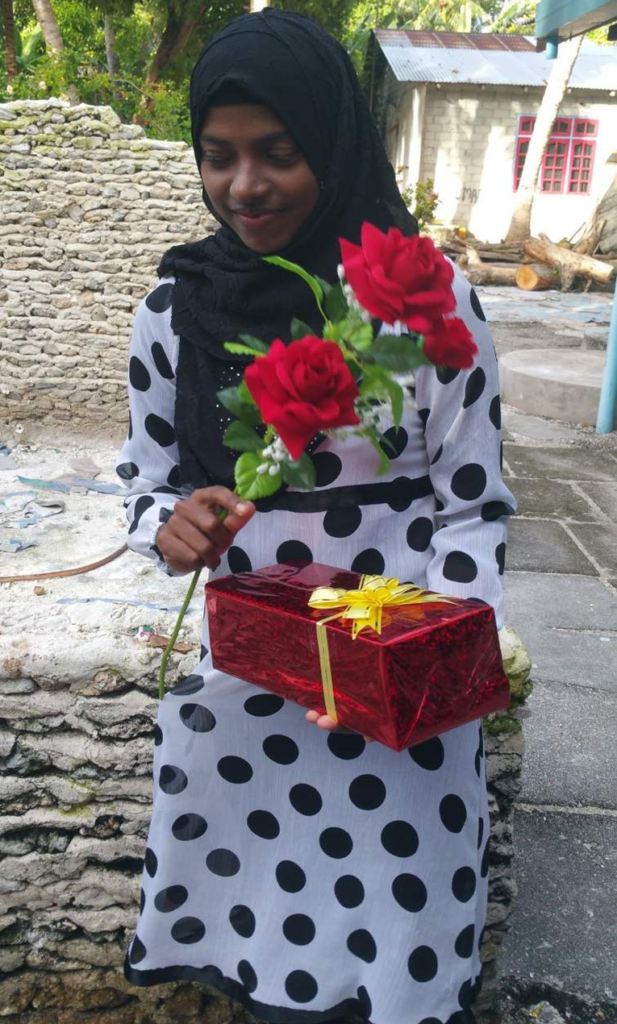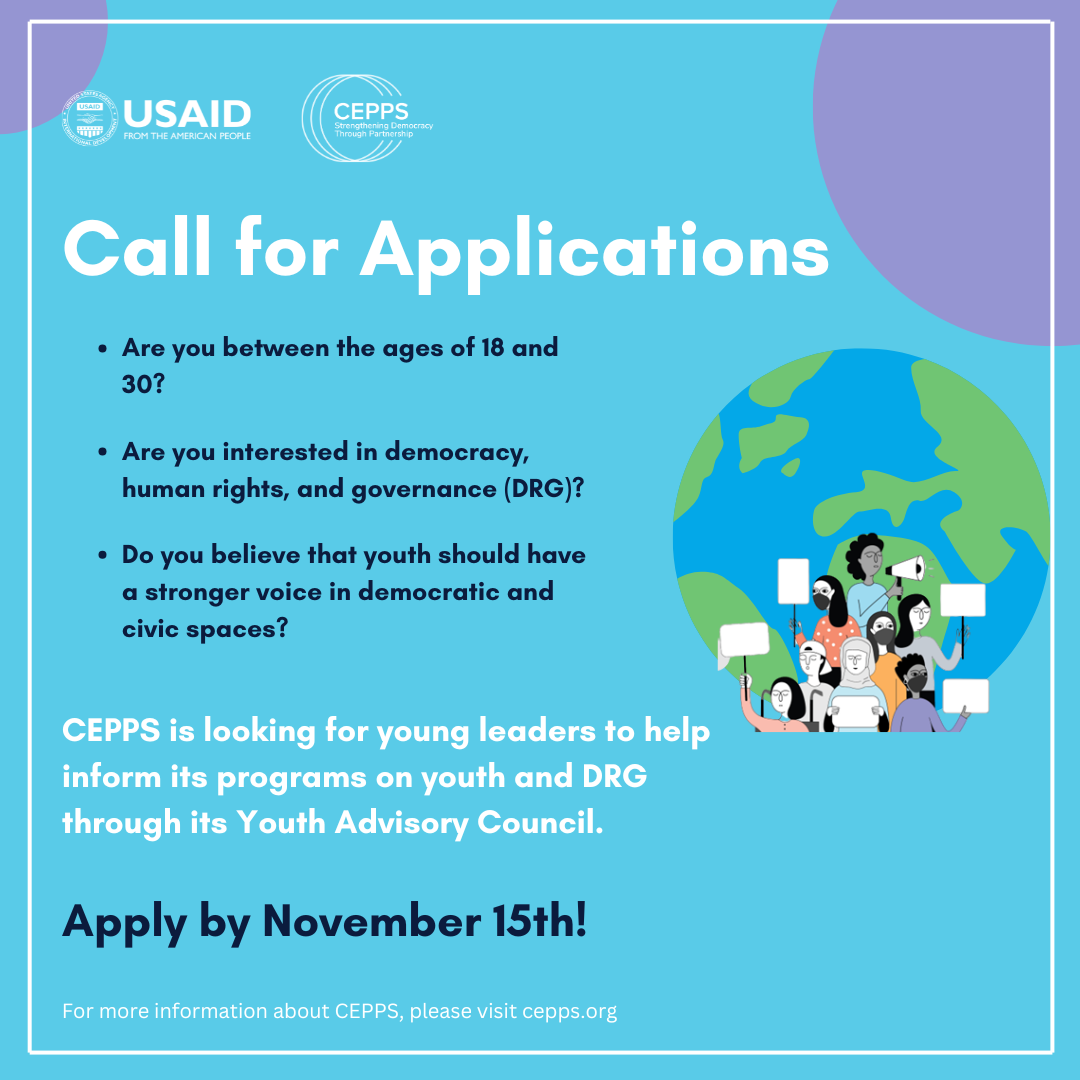Throughout the month of March, CEPPS will be sharing profiles of women leading the way for greater inclusion of the voices and priorities of women with disabilities. In collaboration with local civil society organization Care Society, CEPPS/IFES has been implementing the Power to Persuade Program in the Maldives, strengthening the capacity of women with disabilities to advocate for their priorities in Maldivian policy- and decision-making processes.
Aminath Huvaidha attended the “Power to Persuade” Training in Laamu Atoll and shares how her experience provided her with the confidence and skills to advocate for increased access and equity for women with disabilities at the municipal level. Read more about what Aminath has to say.

“It was nice to see women with disabilities getting together to discuss their challenges and help each other…I learned to take initiative and how to talk to people regarding our concerns. I learned that even I could help to improve the situation…”
In your view, what are the biggest obstacles facing people with disabilities in the Maldives?
The biggest issue is the lack of community awareness [around the need for] disability inclusion. This includes a lack of community awareness of the capabilities of persons with disabilities and a lack of awareness of their responsibility to facilitate an inclusive environment for persons with disabilities.
When a person with a disability braves the many obstacles they face and starts to participate in public life, they are sometimes faced with belittling words or ridicule. This can severely impact their perception of their self-worth and motivation to become active community members.
What do you think are priority issues for women with disabilities?
One of the biggest concerns and priority issues is the lack of disability accessibility around the city. As a woman, this has profound effects because many of us are also mothers. For example, I have a disability that makes it difficult for me to walk. I can walk short distances, but the school is a bit far, so I cannot accompany my child to school. One can’t help but worry for your child when they are away from you. I always worry that if some emergency happens to my child, I will be unable to [get to them] in time due to my disability.
Women with disabilities also find it harder to find employment and be independent. A man with a disability can still move around the community relatively freely and learn a trade from the people they meet. But women with disabilities are very sheltered and protected by their families. This is because women with disabilities sometimes become a target for harassment and abuse… So, it is difficult for them to wander freely in the community, find out what interests them, and learn. Whatever they learn is mostly through their home. I have met many women with disabilities who are talented at sewing and making cakes, but they do not seem to get guidance and support to grow these talents into a career.
Why did you attend the Power to Persuade (P2P) training?
This was the first training that I have ever attended. I was curious to attend because the training was for women with disabilities. We are considered very weak and helpless in society, so it was nice to see women with disabilities discussing their challenges together and help each other. I wanted to help in any way that I could.
What did you learn or take away from the P2P training?
I learned to take initiative and how to talk to people regarding our concerns. I learned that even I could improve the situation of myself and others. I met many women with many forms of disabilities [during the training]. Even our instructor was blind. Watching a person with blindness conduct our workshop activities was very inspiring. I realized that we could speak up, regardless of the challenges we face.
How will you use (or how have you used) what you learned during the training to advocate for women with disabilities in the Maldives?
 At the workshop, we recognized that a lack of access to transportation and social security are critical issues. We met with the CEO of Maldives Transport and Contracting Company and discussed our concerns about physical and financial accessibility to transport. At that time, there was a limit on the number of travelers with disabilities who could travel on the same ferry at no cost using the disability card concessions. I was happy to hear the CEO commit to changing this and allowing any number of persons with disabilities to access the same ferry at our meeting.
At the workshop, we recognized that a lack of access to transportation and social security are critical issues. We met with the CEO of Maldives Transport and Contracting Company and discussed our concerns about physical and financial accessibility to transport. At that time, there was a limit on the number of travelers with disabilities who could travel on the same ferry at no cost using the disability card concessions. I was happy to hear the CEO commit to changing this and allowing any number of persons with disabilities to access the same ferry at our meeting.
We also met with the atoll council to advocate to accelerate the national registry of persons with disabilities, to streamline social security and assistance for persons with disabilities.
What are your hopes for women in the Maldives?
My hope for women in general and women with disabilities is that they are given the resources and support to become independent and self-reliant and that they use their diverse skills to excel in whatever field they are interested in.


